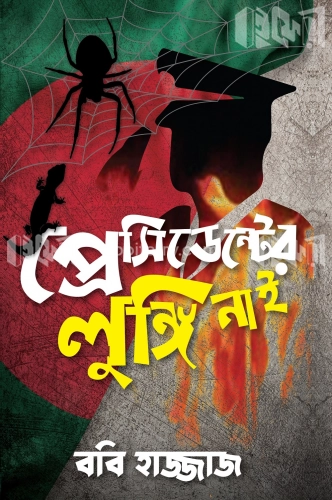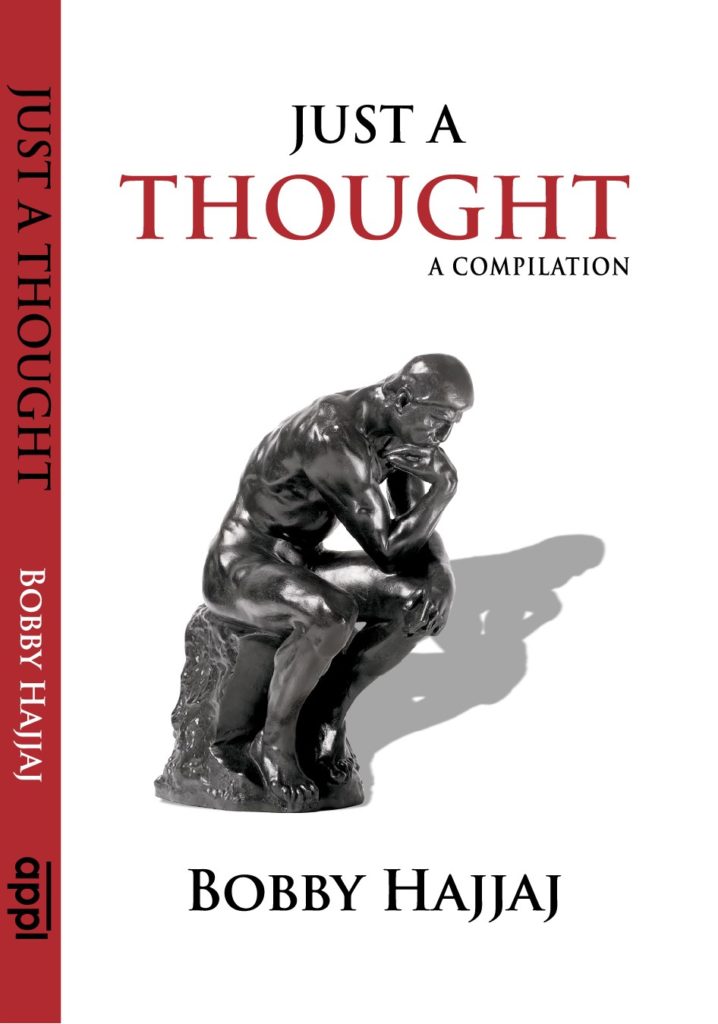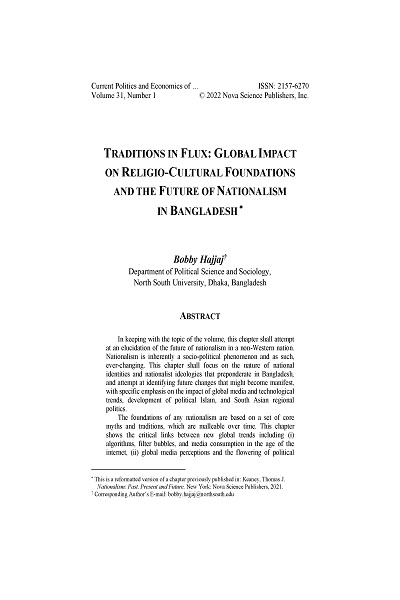Publications
BY BOBBY HAJJAJ
প্রেসিডেন্টের লুঙ্গি নাই
BY BOBBY HAJJAJ
Just a thought a compllation
BY BOBBY HAJJAJ
BY BOBBY HAJJAJ
Identity formation is a complex process and has been discussed by post-structuralist discourse theorist Ernesto Laclau. This paper focuses on Laclau’s proposed ideas on the means of identity production and populism and studies the popular independence movement for Bangladesh under that rubric. It locates charismatic leadership as a necessary condition for populism and identifies Bangabandhu Sheikh Mujibur Rahman as the charismat suturing the various chains of equivalence that rose to become the populist movement that resulted in the nation’s struggle for independence in 1971. This paper also looks at the transformational leadership of Sheikh Mujibur Rahman and acknowledges it as a necessary condition for the patterns of identity creation in East Bengal in the late 1960s.
BY BOBBY HAJJAJ
BY BOBBY HAJJAJ
BY BOBBY HAJJAJ
BY BOBBY HAJJAJ


